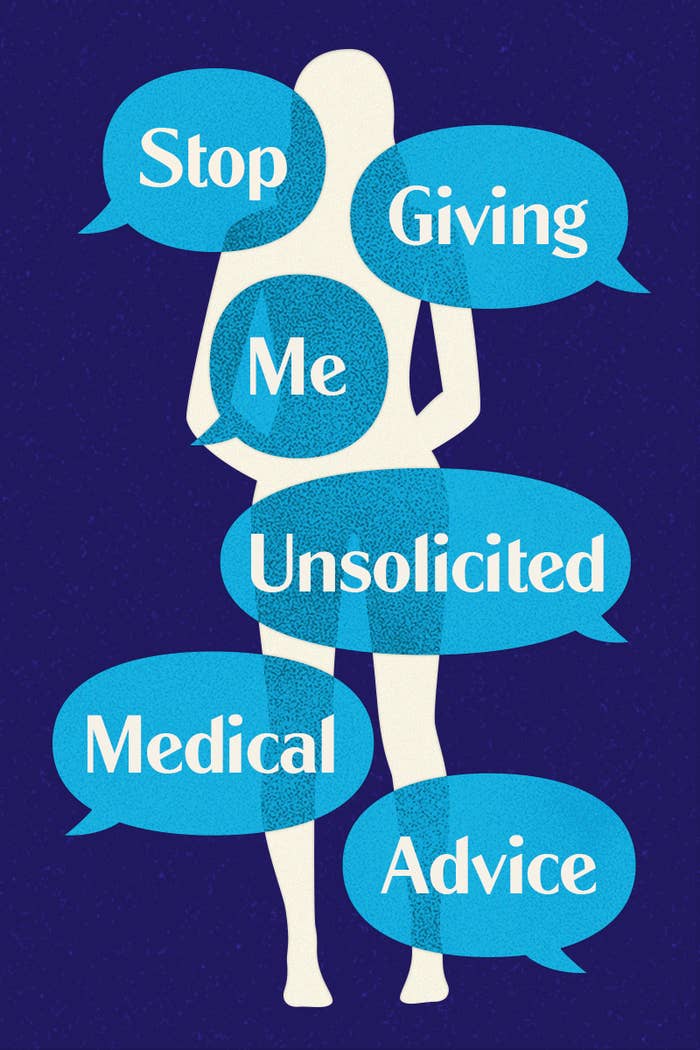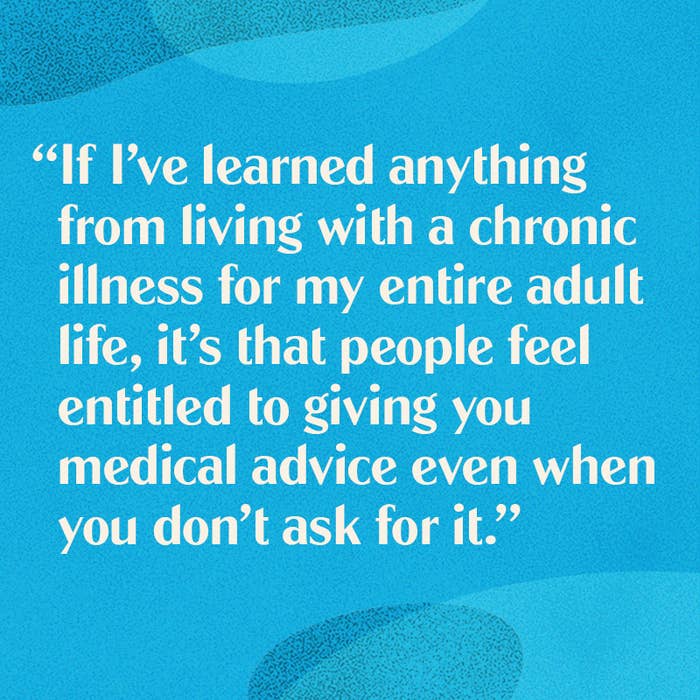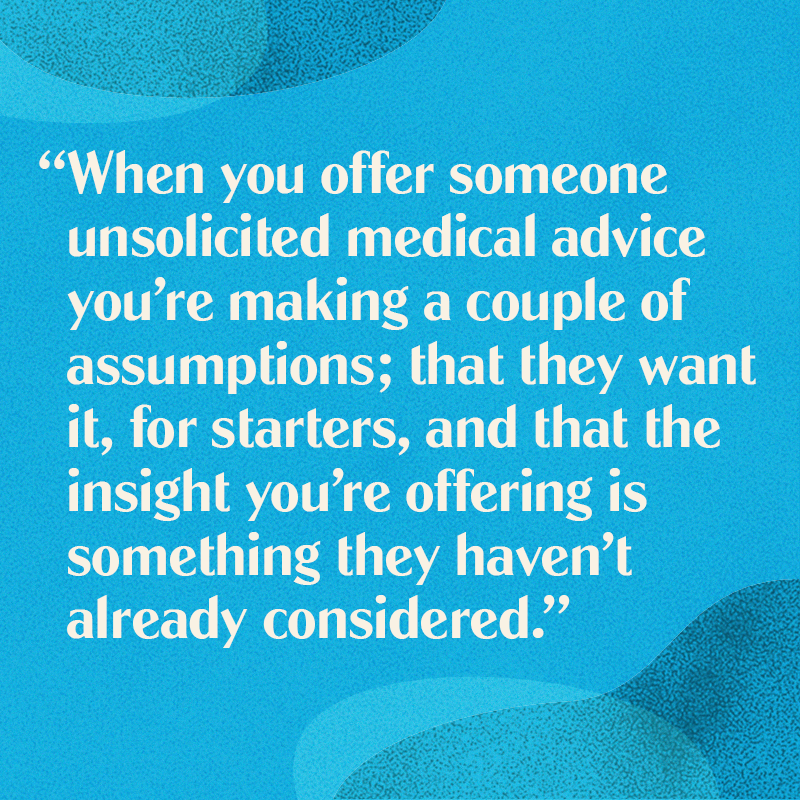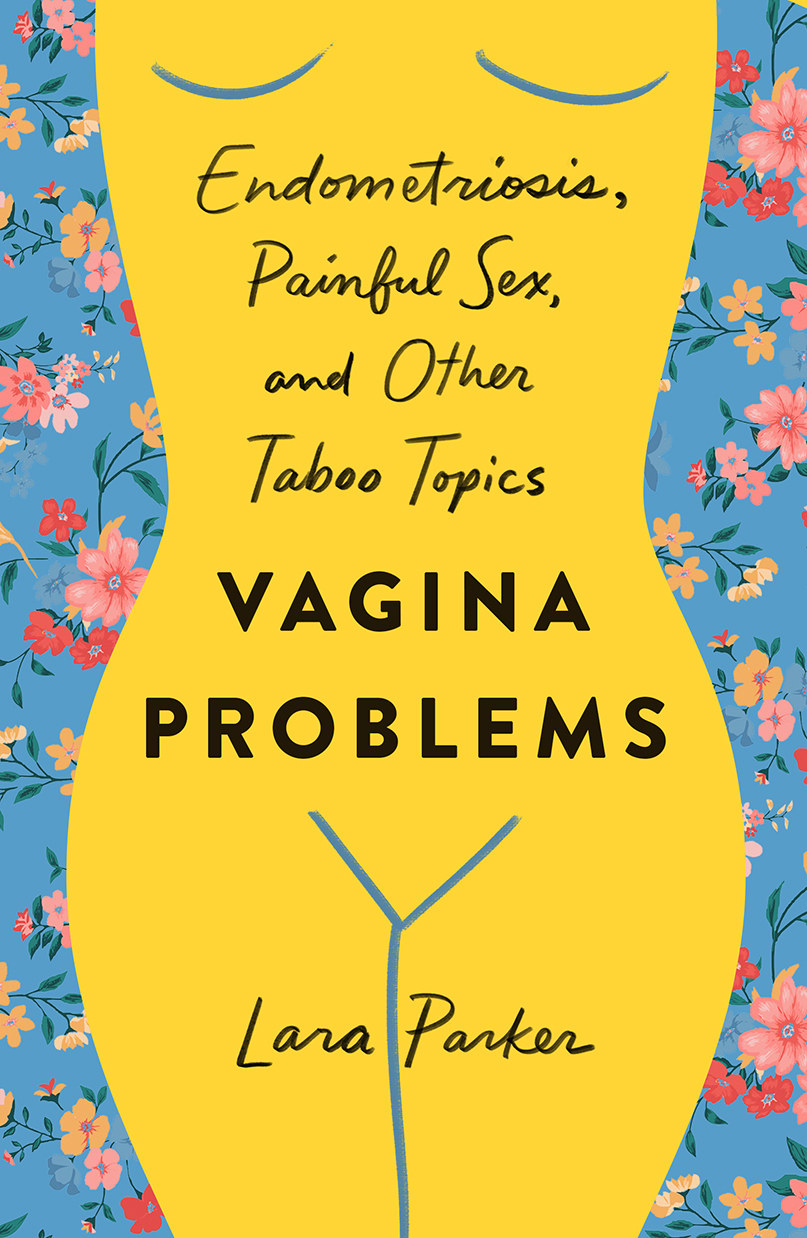
Have you tried drinking celery juice on an empty stomach every morning? I really think it would eliminate your abdominal pain.
For years now, I have been biting my tongue. I have smiled and said thank you. I have held my breath and pushed back tears. I’ve felt the sharpness of my fingernails as they dig into my palms from where I am applying pressure. I try to focus on this sharpness. I allow it to become the main focus of my thoughts. Anything to distract me from those words.
Have you tried...?
This all too common and simple phrase in the chronic illness community has slowly become one of my worst nightmares.
I’ve been experiencing chronic pain since I was in my teens. What started as a “medical mystery” eventually turned into confirmed endometriosis, probable adenomyosis, and overall pelvic floor dysfunction. And now — over a decade later — with two surgeries under my belt, several shots of botox in my vagina, laser therapy, acupuncture, thousands of dollars worth of physical therapy, and 50+ different elimination diets, I’m still in pain. Like most people living with a chronic illness, I’ve tried so, so many things to give me the cure that I so desperately wanted. And as a thin white woman with financial stability, I’ve had the privilege to try more than most. Some of these things helped. Some of them even gave me long-term forms of relief. But I am still sick.
Like most people living with a chronic illness, I’ve received my fair share of unsolicited medical advice over the years. At first, I was grateful. I even gave some of the advice a shot. When LuAnn from my parents’ small-town church suggested that I cut out dairy to get rid of the painful and swollen “endometriosis belly '' I experienced every day, I did so willingly and without question. When Sarah from my college speech class told me my nerve pain was probably just a result of emotional pain from my friend’s untimely death in my teens, I threw myself into therapy. I convinced myself that the burning and tingling sensation all over my body that kept me up at night was just me coming to terms with the tragic death of my friend. It didn’t matter that LuAnn and Sarah weren’t doctors or that they had no idea what I was dealing with, and were — at best — making an educated guess. I was young, I was naive, and most of all, I was desperate. But after many failed attempts at fixing the disease that was wreaking havoc on my body — both with the help of countless actual medical professionals and on my own — my gratitude toward people for taking the time to play doctor by offering me unsolicited advice began turning to disdain. When someone I hadn’t seen in a while asked me about my health and if I was “still sick,” I lied and said I was better. When someone I knew from college went out of their way to leave a comment on a photo I uploaded on Instagram, where I was discussing my experience with endometriosis, telling me to “just stop eating sugar and I’d no longer have pain,” I blocked them.
Somewhere between LuAnn telling me to cut out dairy all those years ago and Sam from Instagram telling me not to eat sugar as if the solution was that simple, I stopped feeling grateful for medical advice at all.
On the surface, someone taking time out of their day to show concern about the struggles in your life might not sound so bad. But to a person living with a chronic illness, it can be an annoyance at best, and a waking nightmare at worst.
If I’ve learned anything from living with a chronic illness for my entire adult life, it’s that people feel entitled to giving you medical advice even when you don’t ask for it — especially when you don’t ask for it. And the person living with the chronic illness is expected to be grateful for it. But I’m not grateful. Unsolicited medical advice fails to do much of anything but make me feel like I am never doing enough. I have dedicated years of my life to managing the symptoms of these diseases; I wake up every single day and have to face the fact that I am still sick. I don’t get a break, I don’t get a day off. It’s always there. So while it’s easy for someone to offer a relatively simple solution to my complex medical problems, it’s not easy for me to hear it. And I shouldn’t have to grin and bear it.

LuAnn from my parent’s church telling me that dairy was the source of all my problems didn’t cure me, but it did ensure that every time I was near dairy I felt like I might pass out because I was so scared to even inhale for fear that it would only make the burning sensation on my vulva even more intense. And telling me my pain was the result of emotional trauma didn't make it go away, but it reinforced the toxic ways we gaslight sick women by telling them their pain is all in their head.
Then, there’s the motivation people have to give this advice. Sure, some people might genuinely want to help. But in my experience the real reason is to convince themselves they could never go through what I’m going through. They’re too smart, too prepared, too healthy. They give me advice so they can assert themselves as the ones who give it, not the ones who would ever receive it. Sure, nearly 200 million people are living with endometriosis and we still haven’t managed to find a cure, but that’s just because we’re not trying.
Worst of all, every last comment about something I should “try” is a painful reminder of how I still lack control over my own body and my illness. Endometriosis has no cure and it leaves its mark on the body; long-term trauma to my pelvic floor muscles, inaccessible treatments, lack of time, lack of energy, depression from being in pain for so long, and medical trauma as a result of medical gaslighting all take their toll. Experts still don’t know exactly what causes endometriosis. It is thought that a multitude of factors — like genetic predispositions — play a strong role in determining who ends up with endometriosis, but it’s certainly not caused by something that those of us who live with this awful disease have done or by some food we’re not avoiding, or some yoga routine we haven’t yet tried. It’s not something we can easily fix, either. No matter how much advice we get.

My chronic illness is personal and isn’t yours to define without my permission. While you sleep in your bed comfortably thinking about all the ways you think you saved me because of advice I never asked for, I’ll be awake in mine, reeling in pain. So who are you really saving? Me, or yourself?
My chronic illness is just that; it’s mine — like my body and like the pain I battle daily. When you offer someone unsolicited medical advice you’re making a couple of assumptions; that they want it, for starters, and that the insight you’re offering is something they haven’t already considered. But what you’re actually doing is reminding me how little control of my own body I have; every time you offer me a solution I know doesn’t work, or will soon find out is useless, you’re placing the blame on me, you’re telling me if I just tried this one more thing, if I just worked a little harder, I wouldn’t be in pain.
The next time you think to offer someone unsolicited advice, ask yourself — why am I doing this? Is it because I have insight into what this person is going through and I know them and their condition well enough to speak to it? Or do I want to pat myself on the back for helping a sick person whose life and illness is truly none of my business? Do I want to make them feel better, or ease my own mind that this could never happen to me? In my experience, it’s almost always the latter, and frankly, I don’t want to hear it anymore. Please stop giving me unsolicited medical advice. I didn’t ask for it and I don’t want it.

Lara Parker is the author of Vagina Problems: Essays About Endometriosis, Painful Sex, and Other Taboo Topics, a memoir about living with a chronic illness. You can purchase it here and follow her @laraeparker.
